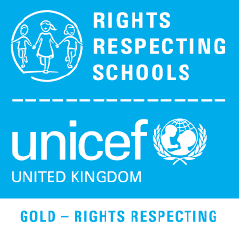Anti-Bullying
What is bullying?
DfE guidance defines bullying as actions that are meant to be hurtful, and which happen on a regular basis. Bullying can be direct (either physical or verbal) or indirect (e.g. being ignored or not spoken to).
Bullying is an unacceptable form of behaviour and is any deliberate act which results from a conscious desire to hurt, threaten or frighten someone. Bullying can be physical, verbal, social or psychological and may take many forms:
- nasty teasing
- physical violence
- spreading rumours
- verbal threats
- writing hurtful things about someone
- demanding money or possessions
- being deliberately unfriendly
- tormenting
- taunting
- threatening or rude gestures
A Rights Respecting Response
Bullying is wrong and damages individual children. We therefore do all we can to prevent it, by developing a school ethos in which bullying is regarded as unacceptable. One of our school values is caring. Our school promotes a caring ethos in which each individual child is important. Caring relationships are fostered at all times and reinforced daily through circle time, assemblies, lessons and our general school environment.
At Lutley, we are committed to being a Rights Respecting school and upholding the universal Rights of a Child as described in the United Nations Convention. We have been recognised by the Rights Respecting School Award as being exemplary in our practice and have been awarded the Gold Award. The following articles from the convention are of particular relevance to Anti-bullying.
- Prepare children to live peacefully and responsibly in free society
- All children have a right to relax and play and join in with a wide range of activities
- All children should be protected from all types of harm
- Nobody can do anything to your body that you do not want them to do and adults should protect you
As a Gold Rights Respecting School, our children understand the importance of respecting each other’s rights and actively promote the convention in the wider community. When dealing with any incidents, rights respecting is always at the core of the response. The children are encouraged to talk openly to any member of staff if they have any concerns and the ‘STOP’ analogy is used to re-enforce this message.

